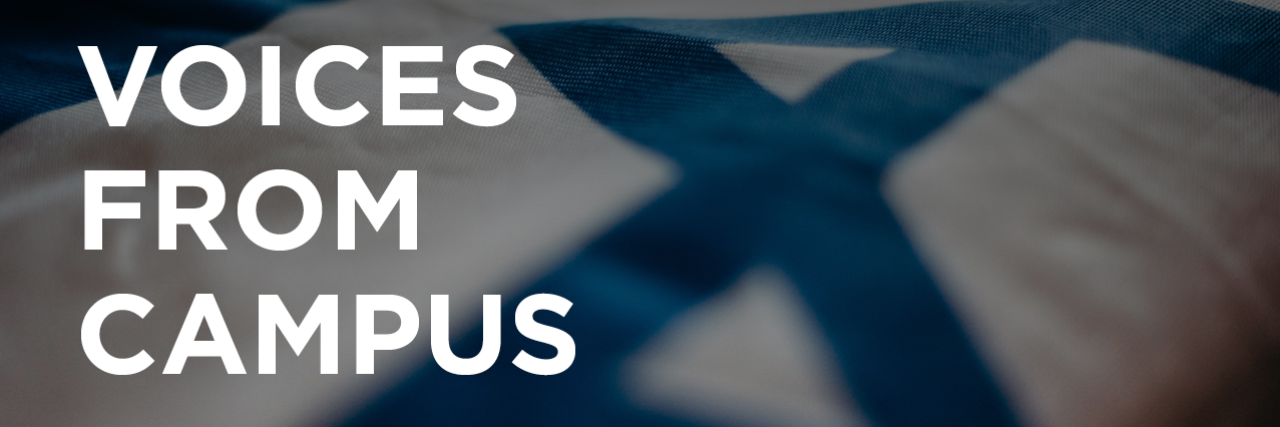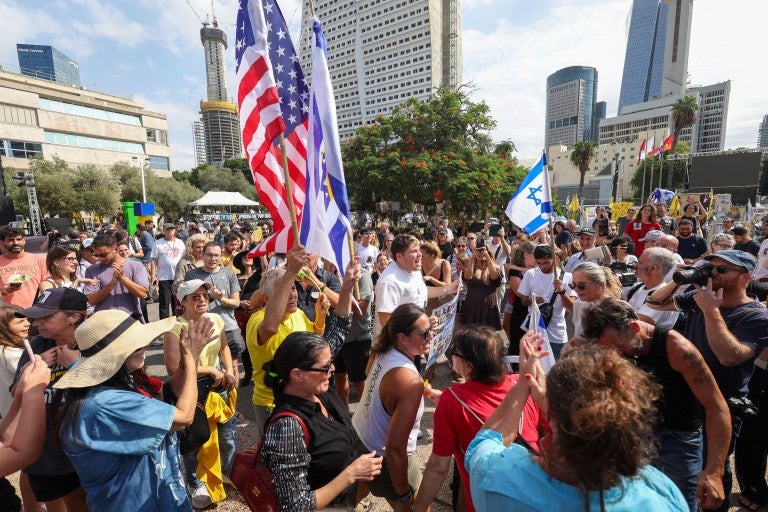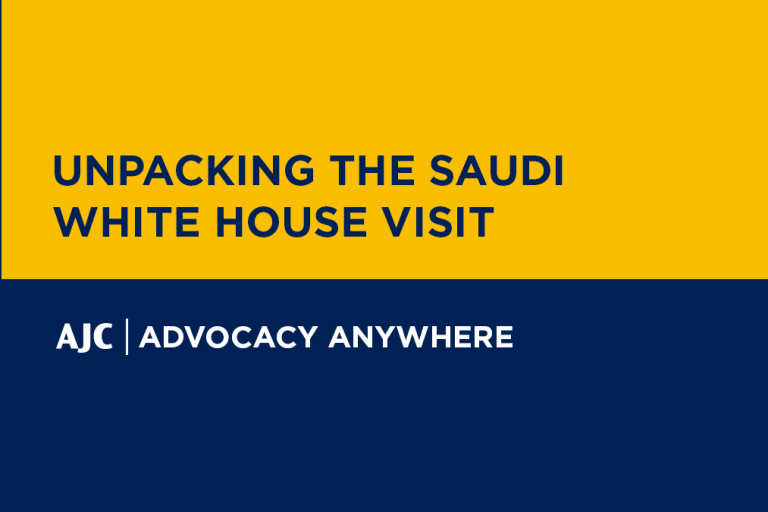July 31, 2025
Lauren Eckstein
WashU, 2026, Goldman Fellow and Campus Global Board Member
Like many other Jewish students on college campuses, I became a target after October 7th. At the small liberal arts college I once loved, I lost nearly all of my friends, the academic path I had planned, and my sense of safety.
What happened to me is not unique—it reflects a dangerous and growing reality: being proudly Jewish on campus can mean becoming a pariah. My story is just one example of modern antisemitism and how institutions meant to protect students too often look the other way.
I had entered college as a double major in politics and history, with dreams of working in Washington, D.C. after graduation. I loved my classes, the intimacy of small seminars, and the ability to build meaningful relationships with professors. I had also found the best friend group I’d ever had at the time. I was thrilled.
The only part missing was a vibrant Jewish life. During my freshman year (2022–23), there was no real Hillel presence on campus. Wanting to help change that, I ran (unopposed) for student leadership. But when I proposed organizing a Birthright trip, I was told bluntly that the group “does not do anything involving Israel.” I resigned soon after. Two other students and I worked on creating a Zionist-friendly Jewish student group, but we were a tiny minority, perhaps two dozen students in total, who ever showed face at an event.
Things escalated when we hosted a barbecue for Yom Ha’atzmaut. A student on social media called us “blood-thirsty baby killers.” We reported it to the school. Nothing happened. This was May 2023.
Since Birthright wasn’t an option, I participated in Onward and spent eight life-changing weeks in Jerusalem. I made meaningful friendships and connected deeply with the holiest place to the Jewish people. But as summer ended, I dreaded returning to campus. I had already been partially canceled just for going to Israel, and was making plans to study abroad for my junior year, to stay away longer.
Then October 7th happened.
As for many others, that day changed my life. The sense of safety many Jews felt shattered instantly. I frantically messaged friends and family in Israel. Thankfully, everyone I personally knew was safe. But so many others were not.
On October 8th, I awoke to a “Palestine Solidarity Statement” jointly posted by Students for Justice in Palestine (SJP) and Jewish Voice for Peace (JVP) chapters on my campus. While Jews around the world were mourning, hundreds of my classmates were celebrating. In the following days, even before Israel had entered Gaza, campus protests erupted. These were not about human rights, they were celebrations of murder, rape, and kidnapping.
I shared my outrage about the violence on Instagram. I lost over 300 followers. This wasn’t about the war; it hadn’t even started yet, it was simply heartbreak over the darkest day in Jewish life in nearly 80 years.
On campus, former friends gave me cold stares. I felt I couldn’t go to class, to the dining hall, or even outside my dorm without being ostracized. Protestors were all over campus, including outside my dorm. A sign I’ll never forget read: “Jews 4 Intifada.” I realize this student likely didn’t know the meaning of the word ‘intifada’ in this context, but I did. It horrified me.
I pleaded with campus administrators for help or support. None came.
On October 27th, I returned home for a mental health break. While I was gone, things got worse. As the war began that day, dozens of faculty members signed a letter “in solidarity with Palestine”, including the entire history department and one of my favorite professors. I realized I could no longer pursue my major.
While I was home, I asked professors if I could complete the semester remotely. Thankfully, they accommodated me. The school administration did not. In early November, my parents and I returned to campus to pack up my dorm. I said goodbye to the college I once loved and the few friends I still had.
I was prepared to take a semester off; my mental health was more important than graduating on time. That’s when my mom, through a Facebook group called Moms Against College Antisemitism (MACA), discovered a spring transfer option to Washington University in St. Louis. WashU had already been on the top of my list. We visited in late November, planning to apply if I liked it.
On campus, there were no protestors nor hate-filled posters. Instead, the student newspaper’s front page covered Jewish groups uniting in honor of the hostages. I saw a wall display with hostage posters, something that wouldn’t last a minute at my former college. Both my mom and I cried, knowing this was the right place for me.
I applied, was accepted, and became one of 10 students in the spring transfer cohort. Most of us had transferred because of antisemitism and quickly bonded over our shared experiences. We all couldn’t wait to dive into Jewish life, and it did not disappoint.
At my previous college, I’d been deprived of Jewish life I so desperately wanted. At WashU, I jumped in fully: four of my five classes were on Jewish topics; I spent time every week at Hillel or Chabad and developed meaningful relationships with their staff. I made incredible friends, both Jewish and non-Jewish, and found healing in the ordinary student life. I could finally worry about the next exam or the St. Louis wind chill, not my safety. I felt normal again.
In March 2024, I joined a Hillel volunteer trip to Israel. I don’t think I’ll ever have a more meaningful experience. We helped farmers whose lives and livelihoods were upended by war. Two moments especially stand out. First, visiting the site of the Nova Festival. The air was still, eerily so. It was then filled with prayer, then the distant sound of bombs and bullets across the border. It’s hard to describe the overwhelming emotions. Second, a protest in Tel Aviv with my cousins. Israelis are famously vocal, and these rallies, led by hostage families, were full of both grief and defiance. Waving the Israeli flag in those moments reaffirmed my love for the country.
Later that spring, during finals week, protestors, mostly non-students, attempted to set up an encampment at WashU. This angered everyone, Jewish and not, as studying for finals is no joke. The encampment lasted all of 15 minutes before campus police cleared it. I’m so grateful to the WashU administration and police for keeping all students, Jewish and not, safe.
In my junior year, I served as co-president of Chabad and a member of the Hillel board. WashU has shown me that college can be a place where your Jewish identity is not just tolerated, but celebrated.
Furthermore, my experiences after October 7th and the contrast between two campuses solidified my path. I’ve always been interested in politics, but now I know I want to focus on Jewish advocacy. I could not be more thankful that my experiences have led me to AJC. This summer, I’ve had the privilege of participating as a Goldman Fellowship in Los Angeles, and in August, I will join the AJC Campus Global Board.
If I’ve learned anything, it’s this: never compromise your identity or your values. There are places where you can thrive, it just may take time to find them. And when you do, you’ll never look back.


